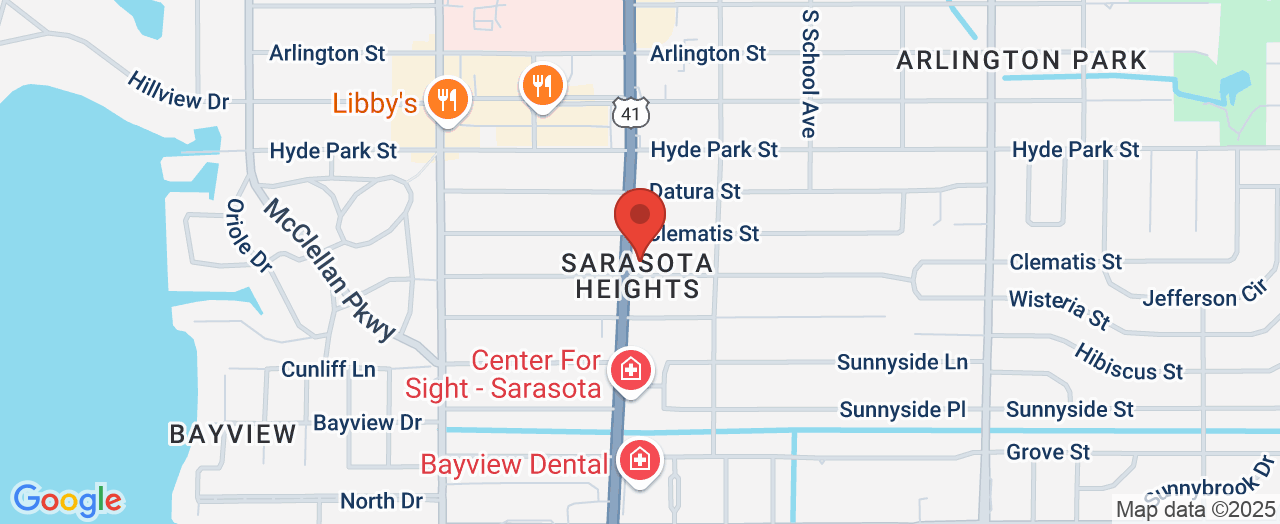Navigating Plastic Surgery Patient Care: What You Don’t Know Can Hurt You
Considering plastic surgery is a pivotal decision, one that can boost confidence and enhance life quality—but it’s not without risk. Mistakes in patient care, whether overlooked details or miscommunications, can quickly stand between hopeful transformation and disappointing results. In a field where appearance and wellbeing are tightly intertwined, even small gaps in preoperative or postoperative understanding can snowball into complications, dissatisfaction, or prolonged recovery.
Plastic surgery patient care is much more than a medical checklist; it’s a comprehensive approach that emphasizes education, communication, and respect for the unique goals of each individual. Unfortunately, many people underestimate the importance of these elements, focusing only on surgical technique or results. This tunnel vision can lead to avoidable headaches, as overlooked preparation or rushed decisions leave patients feeling uncertain or unsupported throughout their journey. Unpacking these critical aspects is essential—not only to avoid regrets but also to optimize safety, recovery, and satisfaction at every step.
The Foundations of Plastic Surgery Patient Care: Why Informed Decisions Matter Most
What makes plastic surgery patient care stand out from other areas of medicine is the deeply personal nature of its outcomes—and the myriad factors that shape success. At its core, patient care in plastic surgery is a dynamic process involving careful patient evaluation, transparent counseling, surgical planning, and attentive follow-up. Without these components, even technically perfect procedures can fall short of patient expectations.

The field continually emphasizes personalized care, but many patients misunderstand its true meaning. For instance, successful plastic surgery hinges on a strong partnership between doctor and patient, built on trust, clear communication, and realistic planning. Rushing through consultations or failing to ask detailed questions about options, risks, or aftercare can lead to misaligned goals and disappointment. Avoiding these pitfalls starts with a commitment to education—knowing not just what procedures are available, but also what recovery entails and what results are achievable for your unique body. Ignoring these aspects opens the door to complications, unmet expectations, or emotional distress.
Why Comprehensive Plastic Surgery Patient Care Makes All the Difference
Plastic surgery centers with extensive experience understand that every patient’s needs, body, and vision are distinct—and that genuine care stretches far beyond the operating room. This commitment to individualized patient care ensures that every decision, from the first consultation to the final follow-up visit, centers on the person’s health, safety, and long-term satisfaction. At Sarasota Plastic Surgery Center, for example, the philosophy is to foster open communication, understanding each patient's unique concerns, and educating them so they can make informed, confident decisions.
The true measure of plastic surgery care isn’t just seen in before-and-after photos; it shines throughout the process. Detailed consultations help patients fully comprehend the options, potential outcomes, and what the recovery journey will entail. With thoughtful guidance, patients can determine the best course of action for their goals and lifestyle. Such detailed attention reduces the risk of post-operative complications and increases the likelihood of a positive, confident transformation. Furthermore, practices that build in time for ongoing communication address questions as they arise—a critical safety net that supports patients both emotionally and physically during vulnerable moments before and after surgery. This approach is where optimal patient outcomes flourish, turning uncertainty into empowerment and minimizing regret.
The High Stakes of Communication: Avoiding Misunderstandings Before and After Surgery
In the world of plastic surgery, missed details can have lasting effects. One of the most common errors patients make is not voicing their concerns or goals clearly during consultations—or hesitating to ask about risks, alternatives, and essential aftercare steps. From reading reviews and patient stories, it’s evident that those who engage honestly and ask plenty of questions are the ones who feel supported and satisfied with their results.
Personalized attention doesn’t end after surgery—the aftercare period can be just as vital. Neglecting follow-up, misunderstanding healing timelines, or disregarding wound care instructions can compromise outcomes and slow recovery. Practices that make patient education a top priority, like spending ample time reviewing goals and answering every question, leave less room for confusion and foster the kind of trust that protects against surprises down the line.
From Informed Consent to Empowered Recovery: The Role of Education in Patient Outcomes
Informed consent in plastic surgery is not a mere formality—it's a process that shapes expectations, safety, and satisfaction. Failing to fully understand what a procedure entails, what the realistic results will be, or how to handle recovery can deeply impact both physical results and emotional wellbeing.

Clinics that encourage patients to actively participate by creating a vision board of goals (through a favorite images gallery, for example) or by walking through before-and-after photos together, ensure that both patient and surgeon are aligned. This level of engagement helps clarify aesthetic desires, navigate potential risks, and identify the best approach for each individual's anatomy and circumstances. Such empowered participation has been shown to reduce anxiety, minimize avoidable pitfalls, and maximize the odds of a smooth, confident recovery.
Transforming Lives, One Procedure at a Time: The Value of Holistic Plastic Surgery Patient Care
The long-term impact of plastic surgery often reaches far beyond the mirror, affecting self-esteem, clothing choices, and even social interactions. Holistic patient care is the backbone of this transformation, addressing not only surgical technique but the emotional journey before and after surgery. By investing in ongoing conversations, attentive follow-ups, and detailed education, practices set up their patients for enduring satisfaction—not just day-one delight.
This comprehensive support is especially critical for patients undergoing multiple or complex procedures. In such cases, transparency about options, risks, timelines, and what to expect each step of the way is essential. When every team member—from surgical staff to administrators—prioritizes attention and empathy, it creates a supportive environment where patients feel valued, safe, and empowered to embrace change.

Inside the Approach: How a Philosophy of Patient-Centered Care Sets the Standard
At Sarasota Plastic Surgery Center, the philosophy of patient care is driven by a blend of technical precision and heartfelt compassion. The focus is not on one-size-fits-all treatment but on carefully listening to each patient’s goals, thoroughly educating them on all available options, and forming a partnership built on trust. This dedication shines through in every aspect of care—from the initial conversation through each stage of recovery.
Board-certified plastic surgeons at the center uphold rigorous standards, a testament to their medical excellence and commitment to safety. Their backgrounds include advanced fellowships, national recognition for research, and affiliations with respected hospitals. Beyond credentials, what distinguishes their care is a genuine desire to help people realize their best selves—without compromising natural results or patient wellbeing. Their practice fosters a warm, respectful environment where all questions are invited and every patient is treated as a unique individual. Patient stories consistently highlight meticulous attention, transparent consultation, and ongoing support as central themes that define their experience.
This patient-centered focus is about more than just stellar outcomes; it cultivates trust, builds confidence, and sets a higher standard for plastic surgery. By remaining approachable and honest, and by empowering patients through every step of their journey, the practice positions itself as a leader in compassionate patient care—raising the bar for others in the industry.

Patient Confidence Starts Here: Real Success Stories in Their Own Words
One of the most compelling testaments to the importance of attentive, skilled plastic surgery patient care comes directly from those who have experienced it. Many patients speak about how their experiences were transformed by compassionate communication, clear explanations, and continuous support throughout their surgical journeys.
The best experience I have had with a doctor. It took me years to convince my husband to be on board with the surgery I had. I am so grateful that it was such a positive experience. Dr. Engel was so kind. He kept me very calm. I didn't have an fears about going under and waking up. I am still healing and everything looks amazing. The entire office is so wonderful even when I get a bit annoying with all my questions. They always treat me with so much kindness. I have recommended Dr. Engel to all of my friends who are interested in some type of plastic surgery.
These real-life endorsements echo a central truth: investing in high-quality, patient-focused care leads to peace of mind and confident, life-changing outcomes. With the right approach, every patient can feel empowered, respected, and deeply cared for as they pursue positive change.
Shaping a Brighter Future: Why Patient Care Is the Cornerstone of Successful Plastic Surgery
Plastic surgery patient care is far more than a protocol—it’s the cornerstone of transformative, safe, and satisfying results. When providers make patient education, communication, and individualized planning top priorities, they aren’t just reducing the risk of complications—they’re elevating the entire experience. In Sarasota, practices committed to this approach have set themselves apart as leaders, helping patients realize not just their aesthetic dreams, but also a renewed sense of self-confidence. For anyone considering plastic surgery, prioritizing patient care is the most important step you can take to ensure comfort, safety, and enduring satisfaction.
The contributions of thoughtful, patient-centric practices continue to shape the future of the field—making plastic surgery less intimidating and more accessible, one patient at a time. The careful integration of transparent communication, tailored education, and compassionate support proves that excellence in plastic surgery is measured not only by results but by the quality of the entire journey.
Contact the Experts at Scott J. Engel, MD, FACS
If you’d like to learn more about how plastic surgery patient care could benefit your transformation, contact the team at Scott J. Engel, MD, FACS. 📍 Address: 2255 S Tamiami Trl, Sarasota, FL 34239 📞 Phone: +1 941-366-8897 🌐 Website: https://sarasotaplasticsurgery.com/our-doctors/scott-j-engel-md/
Scott J. Engel, MD, FACS Location and Availability


 Add Row
Add Row  Add
Add 



Write A Comment